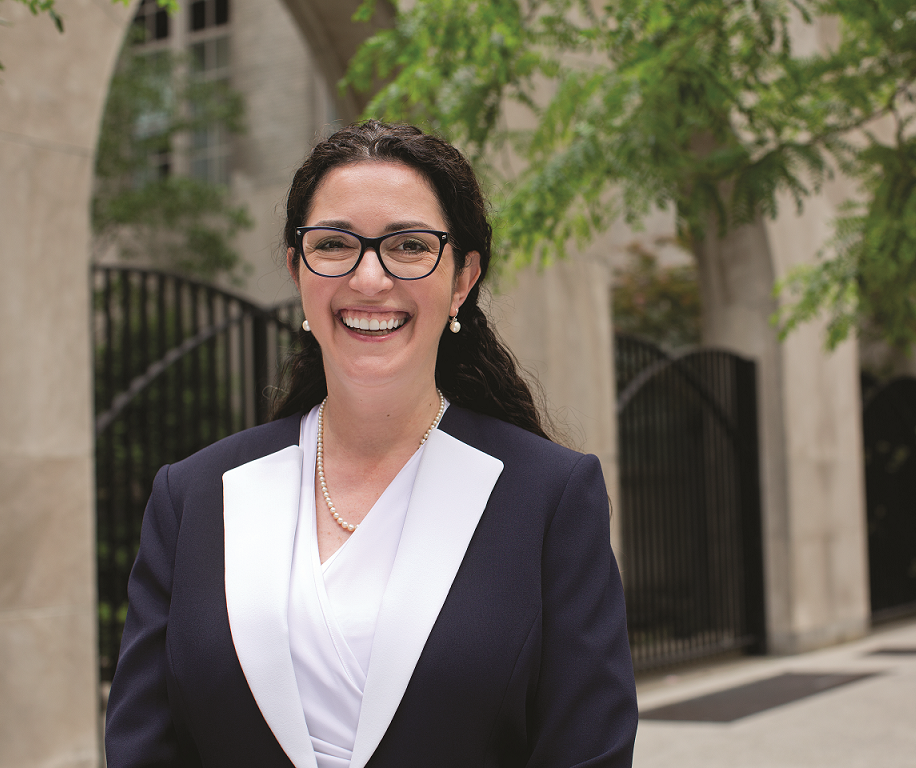More diverse applicants will be encouraged to apply to M.D.-Ph.D. programs if medical schools publish admissions statistics on their websites, a team from Weill Cornell Medicine says in a viewpoint published Dec. 9 in the Journal of Clinical Investigation.
They found that, of the 116 M.D.-Ph.D. programs that featured a website with specific admissions-related details, over half did not include information regarding MCAT scores or GPA for prospective students who applied to, interviewed at, were accepted to, or matriculated into these programs.
In the paper, the authors argue that M.D.-Ph.D. program websites should increase transparency by including the ranges for GPA and MCAT scores of current students, in order to mitigate imposter syndrome that is often experienced by underrepresented groups such as women, underrepresented minorities and first generation college students.

Dr. Ruth Gotian. Credit: John Abbott
“If you have imposter syndrome, you don’t feel like you’re qualified and you think people will think that you’re a fraud,” said co-author Dr. Ruth Gotian, assistant dean for mentoring at Weill Cornell Medicine. “We all have it, but certain groups — such as women or underrepresented minorities — have higher levels.”
As a result of their imposter syndrome, students may not apply to M.D.-Ph.D. programs if they do not fit 100% of the criteria, or have perfect test scores.
“I ran Weill Cornell’s M.D.-Ph.D. program for 22 years, and there is a lot of misinformation posted anonymously on the internet, such as that you need a 4.0 GPA and a perfect MCAT score to be accepted, but that is not true,” Dr. Gotian said.
For instance, some students read online forums such as Student Doctor Network and Reddit to determine the likelihood of acceptance, but the authors note that posts on these websites do not paint accurate pictures of who is applying.
“We want to help get the message across that there is an acceptable range when it comes to these scores. Publishing admission statistics online is a simple thing that can make a big difference,” Dr. Gotian said.
While applicants can pay for access to the Medical School Admissions Requirements database, which includes statistics such as GPA and MCAT scores, the authors argue that this data is not useful for those applying to M.D.-Ph.D. programs, as the application process is different. For M.D.-Ph.D. applicants, research experience plays more of a role in admissions decisions.
Briana Christophers, a second year M.D.-Ph.D. student in the Weill Cornell/Rockefeller University/Sloan Kettering Tri-Institutional MD-PhD Program and lead author of the paper, first introduced the idea of making admissions statistics accessible last June at the American Physician Scientist Association (APSA) Diversity Summit, which was conceived based on a conversation at the 2018 joint meeting between the Association of American Physicians, the American Society for Clinical Investigation and APSA, where the paucity of a diverse physician-scientist workforce was discussed.
“While at the summit, I stumbled upon a tweet from a fellow woman of color who said she wasn’t sure if she wanted to apply to an M.D.-Ph.D. program because she thought she didn’t have a chance,” Christophers said. “I ended up reaching out to her to learn her story. Afterwards I thought, what image are we projecting that a person with multiple publications who has presented at multiple conferences doesn’t think she is qualified? How do we convince more people to apply without questioning their qualifications?”
The website for the Tri-Institutional MD-PhD Program has listed ranges for admission statistics for many years. These ranges are especially helpful for applicants who do not have friends, family members or pre-health advisors with knowledge about the M.D.-Ph.D. program application process.
“It’s an expensive, emotional task to apply to an M.D.-Ph.D. program,” Christophers said. “If we can, in any way, lessen the emotional burden, or help people make better decisions on where to apply, we should do it.”

